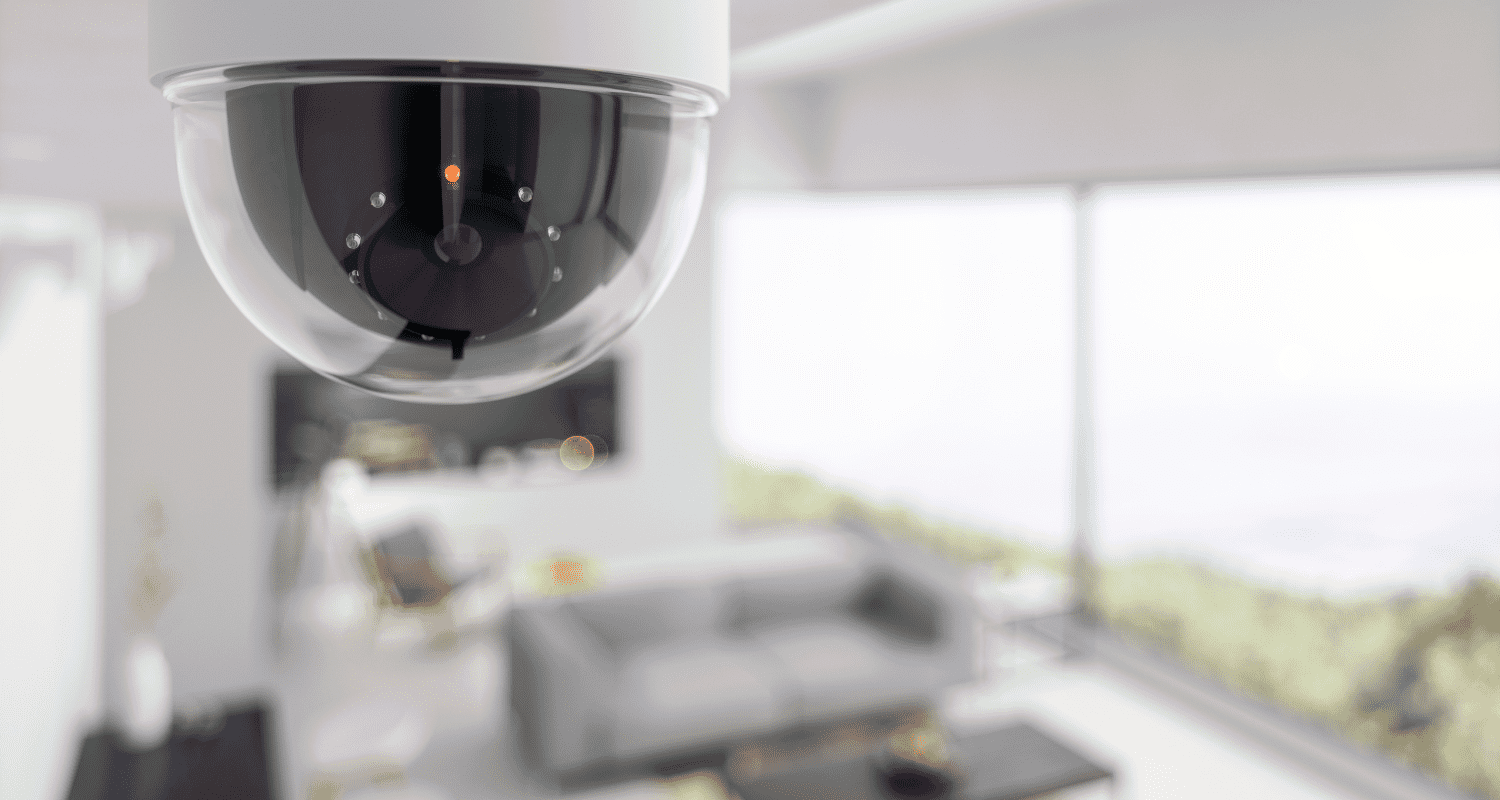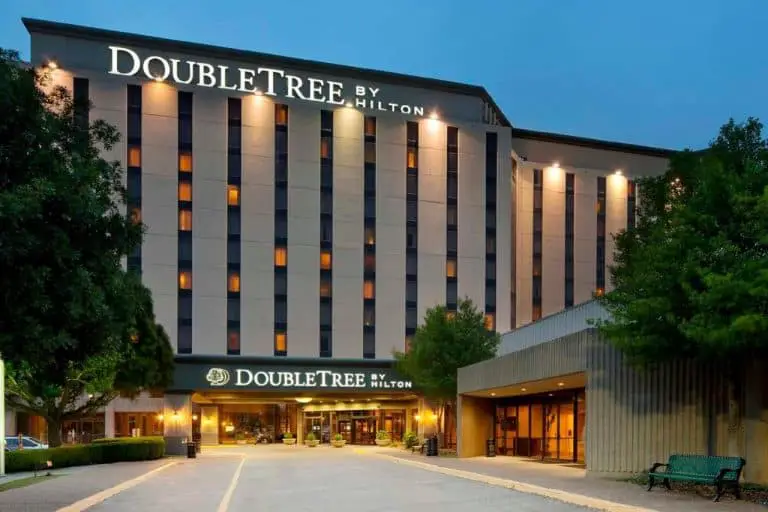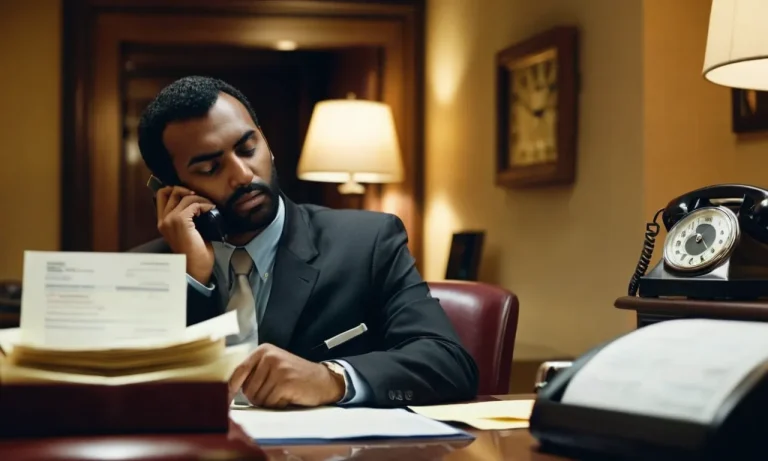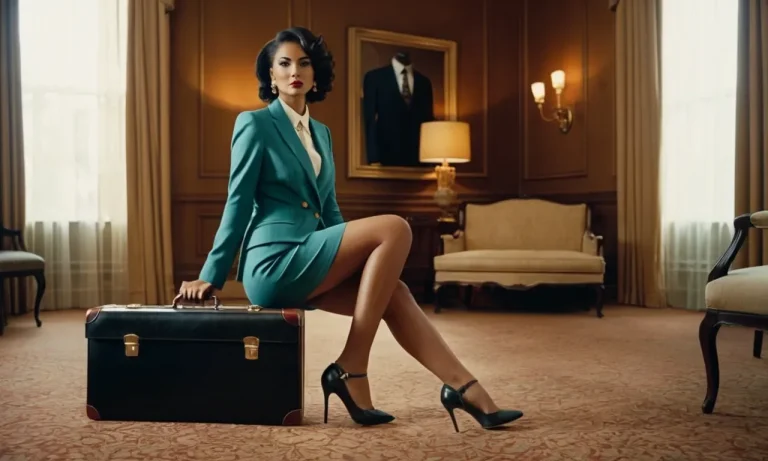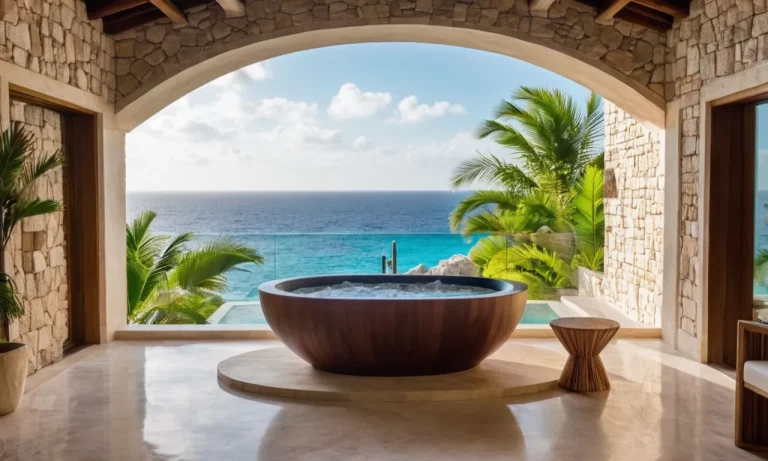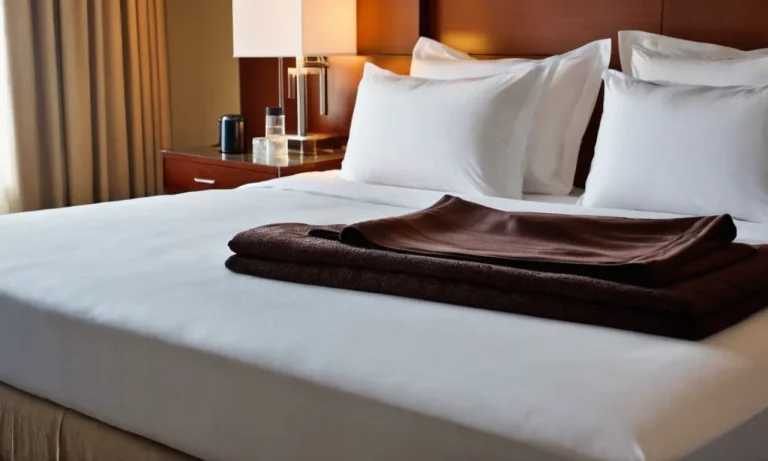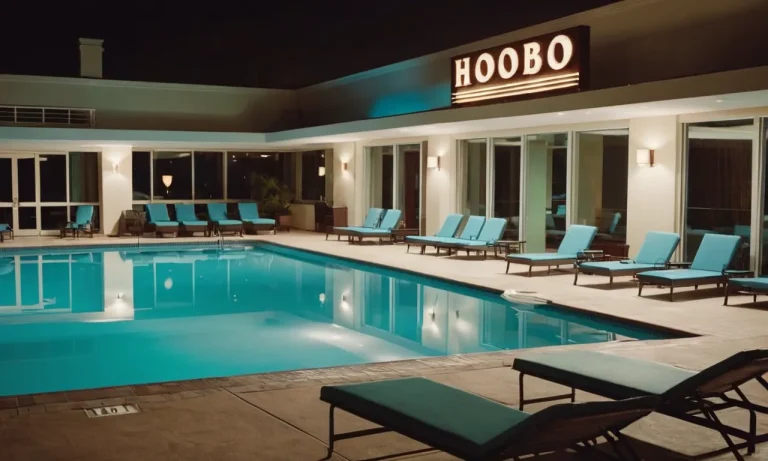Is There a Hidden Camera in Your Hotel Room? A Comprehensive Guide
In an era where privacy concerns are at an all-time high, the thought of hidden cameras lurking in hotel rooms can be unsettling. Whether you’re a frequent traveler or an occasional vacationer, the question ‘Is there a hidden camera in your hotel room?’ has likely crossed your mind.
If you’re short on time, here’s a quick answer to your question: While the presence of hidden cameras in hotel rooms is a rare occurrence, it’s not entirely impossible. Hotels are legally required to disclose the use of surveillance cameras in public areas, but the laws regarding private spaces like guest rooms are less clear.
In this comprehensive article, we’ll delve into the legalities surrounding hidden cameras in hotel rooms, explore the potential motivations behind such actions, and provide practical tips to help you identify and protect yourself from any potential privacy breaches during your stay.
Legal Landscape: Understanding the Laws
Hotel Privacy Laws
The issue of hidden cameras in hotel rooms is a complex one, with a patchwork of laws and regulations governing it across different jurisdictions. In the United States, there is no federal law that directly addresses this issue, but several states have enacted laws to protect guests’ privacy.
For example, New York State has a law that prohibits the installation of imaging devices in “a bedroom, bathroom, or any other premises where there is a reasonable expectation of privacy.” Violations of this law can result in criminal charges and hefty fines.
Variations Across States and Countries
While some states have strict laws in place, others have more ambiguous or lenient regulations. This can create confusion and uncertainty for travelers, as the legal landscape can vary significantly from one location to another.
In Europe, the General Data Protection Regulation (GDPR) provides a framework for data privacy, but the specifics of how it applies to hidden cameras in hotels may differ across member states.
It’s also worth noting that laws governing hidden cameras in hotels may differ for different types of accommodations, such as Airbnb rentals or vacation homes. In some cases, the laws may be less clear or more permissive for these types of lodgings.
Penalties for Illegal Surveillance
The consequences for illegally installing hidden cameras in hotel rooms can be severe. In addition to potential criminal charges, hotels and individuals found guilty of such practices may face hefty fines, civil lawsuits, and reputational damage.
For example, in 2019, a hotel in South Korea was fined 1.6 billion won (around $1.4 million) after hidden cameras were discovered in several guest rooms.
It’s important to remember that the laws surrounding hidden cameras in hotels are constantly evolving, and it’s crucial for travelers to stay informed and vigilant. Reputable travel websites and organizations often provide up-to-date information on hotel privacy laws and safety tips for travelers.
Motivations Behind Hidden Cameras
Voyeurism and Exploitation
Unfortunately, one of the primary motivations behind hidden cameras in hotel rooms is voyeurism and exploitation. Some individuals with perverted and criminal intentions secretly install hidden cameras to capture unsuspecting guests in compromising situations, such as while undressing or engaging in intimate activities.
This is a blatant violation of privacy and a form of sexual exploitation. According to a report by CNN, incidents of hidden cameras in hotel rooms and vacation rentals have been on the rise, with victims often feeling violated and traumatized by the experience. 😔
In some cases, the recorded footage may even be distributed online or sold on the dark web, further compounding the trauma and exploitation of the victims. It’s a despicable act that can have long-lasting psychological effects on those affected.
😢 Authorities around the world are cracking down on this illegal practice, but it remains a concerning issue that requires vigilance from both travelers and accommodation providers.
Corporate Espionage
Another motivation behind hidden cameras in hotel rooms is corporate espionage. Businesses, particularly those involved in sensitive or competitive industries, may resort to covert tactics to gain an advantage over their rivals.
By secretly recording meetings, negotiations, or conversations held in hotel rooms, they aim to gather confidential information or trade secrets that could give them a competitive edge. 🕵️♂️
This practice is not only unethical but also illegal in many jurisdictions. However, the lure of obtaining valuable business intelligence can drive some unscrupulous individuals or organizations to engage in such activities.
According to a report by CSO Online, corporate espionage costs businesses billions of dollars annually and can have far-reaching consequences for those involved. It’s a risky and underhanded tactic that can damage reputations and erode trust in the business community.
Security Concerns
While the previous motivations are nefarious, there are legitimate security concerns that may prompt the use of hidden cameras in hotel rooms. Law enforcement agencies or intelligence services may employ covert surveillance techniques, including hidden cameras, to monitor individuals suspected of criminal activities or posing a potential threat to national security.
🚨
Additionally, some hotels may install hidden cameras in public areas, such as lobbies or hallways, to enhance security and deter criminal behavior. However, it’s crucial that these measures are implemented transparently and with proper legal oversight to protect the privacy rights of guests.
According to a report by The New York Times, only around 10% of hotels have policies addressing hidden cameras, highlighting the need for clearer guidelines and regulations in this area.
Regardless of the motivation, the unauthorized use of hidden cameras in hotel rooms is a serious violation of privacy and, in many cases, illegal. It’s essential for travelers to remain vigilant and take precautions to protect themselves from potential privacy breaches.
By being informed and aware, we can safeguard our rights and feel secure during our stays in hotels or other accommodations. 👍
Identifying Hidden Cameras: What to Look For
The thought of a hidden camera lurking in your hotel room is an unsettling one, but unfortunately, it’s a reality that many travelers have to face. With the rise of affordable spy cameras and the increasing demand for voyeuristic content, the risk of being secretly recorded during your stay has become a legitimate concern.
Don’t let your privacy be compromised! By being vigilant and knowing what to look for, you can significantly reduce the chances of falling victim to this invasion of privacy.
Common Hiding Spots
- Smoke detectors and fire alarms
- Alarm clocks and digital clock radios
- Electrical outlets and power strips
- Air conditioning vents and ducts
- Lamps and light fixtures
- Decorative objects and picture frames
- Bathroom fixtures and toiletries
According to a study by Brickhouse Security, over 60% of hidden cameras found in hotel rooms are located in the bathroom area, with the most common spots being smoke detectors, towel racks, and even tissue boxes.
However, don’t let your guard down elsewhere – hidden cameras can be cleverly concealed in virtually any object or fixture in the room.
Physical Signs to Watch Out For
While some hidden cameras are virtually undetectable to the naked eye, there are often subtle physical signs that can give them away. Look for objects that seem out of place or inconsistent with the room’s decor, such as oddly positioned or misaligned fixtures.
Pay attention to tiny pinhole openings or reflective surfaces that could be camera lenses. Be wary of any wires or cables that seem unnecessary or lead to an unusual location. And don’t forget to check for any tampering or damage to objects that could indicate they’ve been tampered with to conceal a recording device.
Using Detection Apps and Devices
In today’s tech-savvy world, there are numerous apps and devices designed specifically to help you detect hidden cameras. Many of these tools utilize advanced technologies like radio frequency (RF) detection, lens detection, and even thermal imaging to uncover even the most well-hidden recording devices.
Some popular options include the Hidden Camera Detector app for Android and iOS, as well as dedicated camera detectors like the CamScanner from Brickhouse Security.
However, it’s important to note that while these tools can be incredibly helpful, they are not foolproof. A combination of vigilance, common sense, and a thorough physical inspection remains the most reliable way to ensure your privacy and peace of mind during your hotel stay.
So, keep your eyes peeled, trust your instincts, and don’t hesitate to report any suspicious activity or findings to hotel management or the proper authorities. Your privacy is worth protecting, and with the right knowledge and precautions, you can enjoy a worry-free and secure stay.
Protecting Your Privacy: Practical Tips
Conducting Room Sweeps
One of the most effective ways to ensure your privacy in a hotel room is to conduct a thorough sweep upon arrival. Start by inspecting the room for any hidden cameras or recording devices. Check behind mirrors, inside clocks, smoke detectors, and other potential hiding spots.
Don’t forget to scan the bathroom, closets, and even the air vents. If you find anything suspicious, report it immediately to the hotel management and consider changing rooms or establishments.
According to a survey by Travel Confidential, over 60% of travelers have concerns about hidden cameras in hotel rooms. To ease your mind, you can purchase a camera detector device or use a smartphone app like Hidden Camera Detector, which uses electromagnetic fields to detect hidden cameras and other electronic devices.
Using Privacy Covers and Filters
Even if you don’t find any hidden cameras, it’s a good idea to use privacy covers and filters to protect yourself from potential surveillance. Consider investing in a webcam cover for your laptop or tablet, which can easily slide over the camera lens when not in use.
You can also purchase privacy filters for your devices, which make it difficult for anyone to view your screen from an angle.
When it comes to your hotel room TV, some experts recommend unplugging it or covering the lens with a towel or tape. While the likelihood of a hidden camera in a TV is low, it’s better to be safe than sorry, especially if you plan to have private conversations or engage in sensitive activities in your room.
Reporting Suspicious Activity
If you notice anything out of the ordinary or suspect that your privacy has been compromised, don’t hesitate to report it to the hotel management immediately. Reputable hotels take guest privacy seriously and should investigate any concerns promptly.
If the hotel staff fails to address your concerns or acts dismissively, consider escalating the matter to local authorities or consumer protection agencies.
It’s also a good idea to document any suspicious activity or evidence, such as taking photos or videos, in case you need to file a formal complaint or pursue legal action. Remember, your safety and privacy should always be the top priority when staying in a hotel or any other accommodation.
While the chances of encountering a hidden camera in your hotel room are relatively low, it’s always better to be proactive and take precautions to protect your privacy. By conducting room sweeps, using privacy covers and filters, and reporting any suspicious activity, you can enjoy a worry-free and secure stay during your travels.
😊
Hotel Industry Efforts and Best Practices
The hospitality industry has taken significant steps to address the issue of hidden cameras in hotel rooms, recognizing the grave violation of privacy and trust such incidents pose. Through comprehensive staff training, implementation of strict policies, and adoption of advanced security measures, hotels are working diligently to safeguard their guests’ well-being and maintain a secure environment.
Staff Training and Awareness
One of the critical aspects of combating hidden cameras is fostering a culture of awareness and vigilance among hotel staff. According to a study by the American Hotel & Lodging Association, over 80% of hotels provide regular training sessions to sensitize employees about identifying potential security threats, including hidden recording devices.
These training programs equip staff with the knowledge and skills necessary to recognize suspicious behavior, conduct thorough room inspections, and report any concerns promptly.
Furthermore, many hotels have implemented strict protocols for room inspections, ensuring that every corner is meticulously checked before and after guest stays. This proactive approach helps mitigate the risk of hidden cameras being planted or overlooked.
Hotels also encourage guests to report any suspicious activity or devices immediately, fostering a collaborative effort in maintaining a secure environment.
Implementing Strict Policies
To reinforce their commitment to guest privacy, hotels have implemented strict policies and guidelines regarding the use of recording devices on their premises. These policies often prohibit the installation or use of any unauthorized recording equipment, including hidden cameras, in guest rooms, public areas, and staff-only zones.
Violators face severe consequences, including potential legal action and immediate removal from the premises.
Moreover, hotels have established robust screening processes for employees, vendors, and contractors, ensuring that background checks and security clearances are thoroughly conducted. This helps mitigate the risk of individuals with malicious intent gaining access to sensitive areas or guest rooms.
Adopting Advanced Security Measures
In addition to staff training and policy implementation, hotels are embracing advanced security measures to detect and prevent the use of hidden cameras. Many properties have invested in state-of-the-art scanning equipment and specialized tools designed to detect even the most sophisticated recording devices.
These tools can identify hidden cameras, microphones, and other surveillance equipment, ensuring that guest rooms and public areas are thoroughly inspected before occupation.
Furthermore, hotels are leveraging cutting-edge technology, such as artificial intelligence (AI) and machine learning algorithms, to enhance their security protocols. These advanced systems can analyze vast amounts of data, identify patterns, and detect anomalies that may indicate potential security threats.
By staying ahead of the curve with innovative security solutions, hotels are demonstrating their commitment to providing a safe and secure environment for their guests.
With a multi-faceted approach encompassing staff training, strict policies, and advanced security measures, the hotel industry is taking proactive steps to combat the issue of hidden cameras and protect the privacy and well-being of their guests.
By fostering a culture of vigilance and implementing robust security protocols, hotels aim to maintain the trust and confidence of travelers worldwide.
Conclusion
The possibility of hidden cameras in hotel rooms, while rare, is a legitimate concern that should not be taken lightly. By understanding the legal landscape, being aware of potential motivations, and taking proactive measures to identify and protect against privacy breaches, you can enjoy a worry-free and secure stay during your travels.
Ultimately, it’s crucial for both travelers and the hotel industry to prioritize privacy and security. By working together and implementing best practices, we can create a safer and more trustworthy environment for everyone involved.
Stay vigilant, report any suspicious activity, and remember that your privacy is a fundamental right that deserves to be respected and protected.

